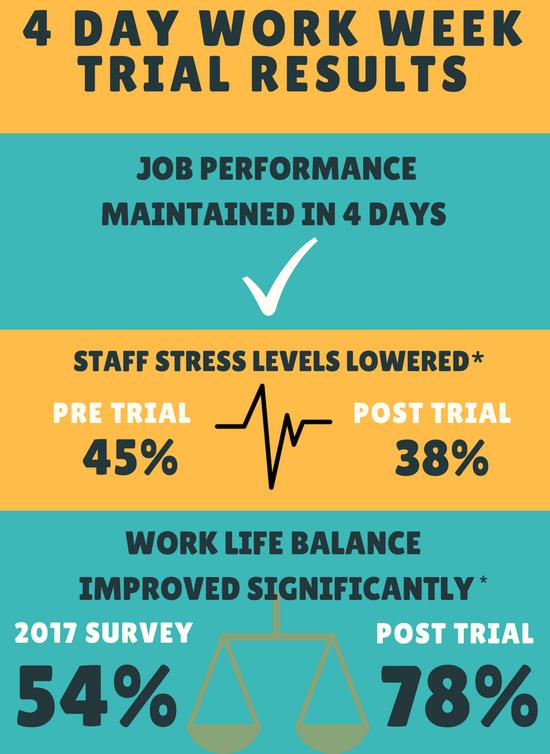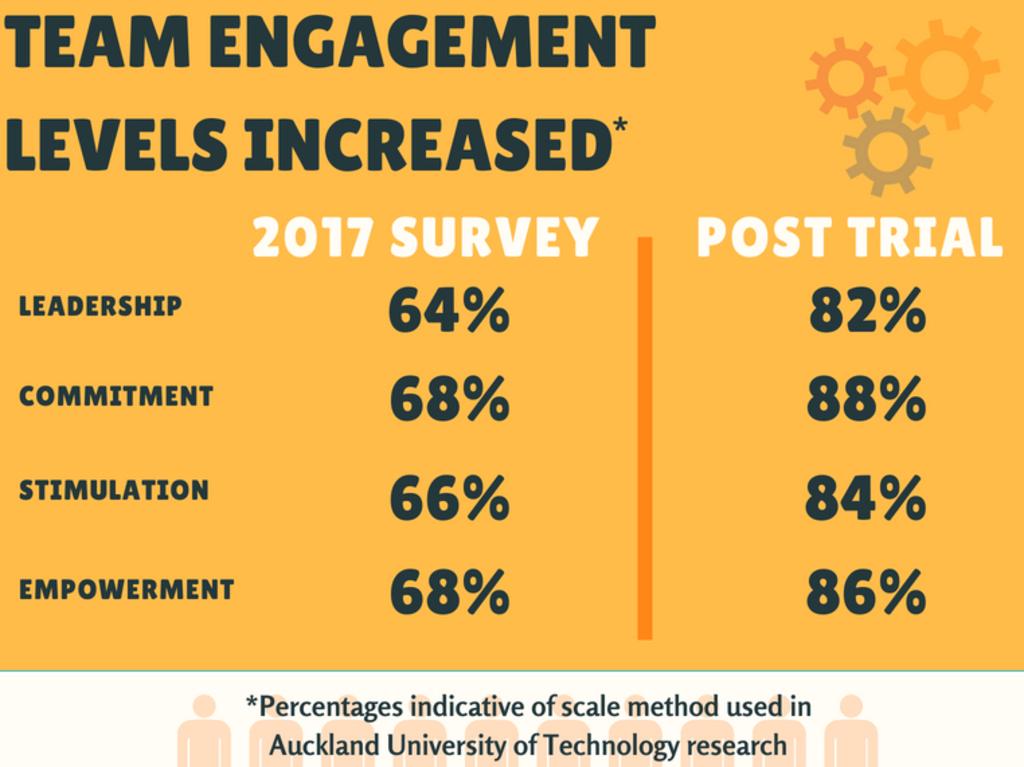Successful trial proves a four-day work week is actually better
WORKING four days a week but being paid for five might sound like a pipe dream — but it could soon become a reality.

WORKING four days a week but getting paid for five might sound like an impossible dream but a recent trial has proved that it not only works, but is extremely beneficial.
At the start of March, New Zealand company Perpetual Guardian began a two-month experiment which saw their staff given a three-day weekend while still getting their regular five-day pay.
The trial was so successful that the company, which manages wills and trusts, now wants to make the change permanent.
READ: How to work less and earn more
When founder of the company Andrew Barnes announced the radical change to his 240 staff it was met with nervous laughter. But by the end of the trial, the firm saw drastic improvement in work-life balance, engagement and lowered stress levels.

Staff were surveyed across different areas before and after the trial, with results showing a clearly positive affect.
Satisfaction in work-life balance jumped to 74 per cent after the trial from 54 per cent the year before.
Engagement levels increased by 5 per cent and employees were more willing to put in extra effort to their work, relating to a jump in job satisfaction from 77 to 81 per cent.
Before the trial began, there were concerns that reducing the time employees had to get their work done would increase stress levels as they would feel under more pressure, but results showed that staff stress actually decreased by 7 per cent.

They managed all of this while maintaining the same productivity levels as when staff were working the regular five-day week.
“Our leadership team reported that there was broadly no change in company outputs pre and during the trial,” Mr Barnes said.
“They perceived no reduction in job performance and the survey data showed a marginal increase across most teams.”
HOW IT WORKED
Mr Barnes developed the idea for the innovative trial after reading reports that revealed productivity in the workplace could be as low as one-and-a-half hours a day.
He decided to figure out a way to increase employees work-life balance while also increasing day-to-day productivity.
Each team within the company had a month to prepare for the change. During this time they had to detail what their job consisted of and figure out a way they could complete it in four days instead of five.
Employees still had to meet deadlines and there were customers that relied on them so everyone being out of the office on Friday wasn’t exactly feasible.

Instead people in different teams either had the Monday or the Friday off, depending on what their role required.
This meant that everyone got a four-day work week but clients were still taken care of.
Senior lecturer at the University of Auckland Business School Dr Helen Delaney pointed out that this planning process actually made the staff feel that they had a greater hold of their work.
“Employees designed a number of innovations and initiatives to work in a more productive and efficient manner, from automating manual processes to reducing or eliminating non-work-related internet usage,” she said.
WHAT NOW?
Perpetual Guardian has already taken the first step to making the change permanent by recommending to the board that they stick to the four-day structure.
Though changing to accommodate this structure permanently isn’t going to be without its challenges, Mr Barnes said the positives far outweigh the negatives.

“If you can have parents spending more time with their children, how is that a bad thing? Are you likely to get better educational outputs as a consequence?” he said.
“Are you likely to get fewer mental health issues when you have more time to take care of yourself and your personal interests — probably.”
He also added that if the change is implemented to more offices it means there will be fewer people on the roads, offices won’t have to be as big as there are fewer people in at one time and people will be able to work more efficiently and remotely.
He urged other businesses to think about how a change in flexibility could improve their company.
“I don’t know what the outcomes will be, but I would say to all business owners, be a little creative, think about trying a few things.”



